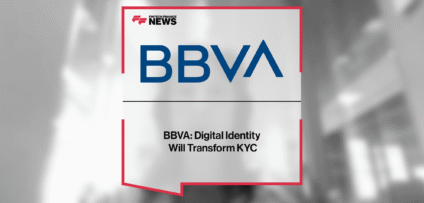Breaking News

Trouble in Paradise? Consumers Don’t Trust Travel Industry to Protect Them From AI-Powered Fraud
AI Fraud in Travel Industry is becoming a serious concern, with more than half of global consumers lacking trust in online booking platforms. According to a new report by Jumio, this rise in AI-powered travel Fraud is driving major hesitancy among travelers who increasingly fear falling victim to digital fraud.
Jumio, the leader in AI-powered identity intelligence anchored in biometric authentication, automation and data-driven insights, today released new findings from its 2025 Online Identity Study. As consumers worldwide set out for summer leisure, digital identity protection may be taking a more prominent spot on the packing checklist, with nearly half of global consumers (44%) lacking confidence in the travel industry’s ability to protect them from AI-powered fraud including identity theft and account takeover fraud. This lack of confidence jumped to 55% for Americans.
For the sharing economy (including vacation rentals and other travel-focused gig economy services), confidence falls even further, with 60% in the U.S. and 50% globally saying they don’t feel adequately protected.
Consumers share sensitive personal data in exchange for a simple vacation, notably turning over government-issued IDs like passports and drivers’ licenses in order to book and check into flights, reserve accommodations and rental cars, and more. This exchange of data makes consumers vulnerable to fraud during the summer travel season — and they recognize the risk.
These sentiments trend alongside broader global distrust in digital spaces, with 69% of respondents saying AI-powered fraud now poses a greater threat to personal security than traditional forms of identity theft.
In response to this distrust, consumers worldwide are slightly more willing to invest more time in identity verification on these platforms than in 2024:
- In 2025, 74% of global consumers said they would willingly spend more time on identity verification when accessing travel and hospitality-related platforms if it improved their security — up from 71% in 2024.
- Global willingness to spend time verifying identity on sharing economy platforms also stayed high at 70% in 2025, only slightly down from 71% in 2024, but with a subtle shift from “a lot more time” to “a little more time.” This suggests increased caution, with a remaining preference for low-friction, visible safeguards.
Consumers’ increasing willingness to spend time on identity verification for travel-related transactions follows a growing trend in traditionally higher-risk industries. For instance, 80% of consumers globally were willing to spend more time on security for digital platforms supporting banking and financial services.
“Whether it’s an evacuation plan or a safe in every hotel room, the travel and hospitality industry know how to build the structures and processes customers need to feel safe. Now customers expect the same level of care for their personal data,” explained Bala Kumar, chief product and technology officer at Jumio. “But travel and hospitality businesses can’t keep layering traditional protections on already complex processes — they need new solutions and technologies to balance convenience with protection, even as AI-powered scams evolve.”
Find additional data and insights here.
People In This Post
Companies In This Post
- How USAA Builds Digital Experiences Around Its Members Read more
- Spayce: Organic Growth, Own Tech, New Wallet Read more
- EXCLUSIVE: “Check, Check… and Check!” – Pilar Fragalà, CBI in ‘The Fintech Magazine’ Read more
- BBVA: Digital Identity Will Transform KYC Read more
- Pocket Network Is Pioneering ‘DePIN for Data’ Read more

















